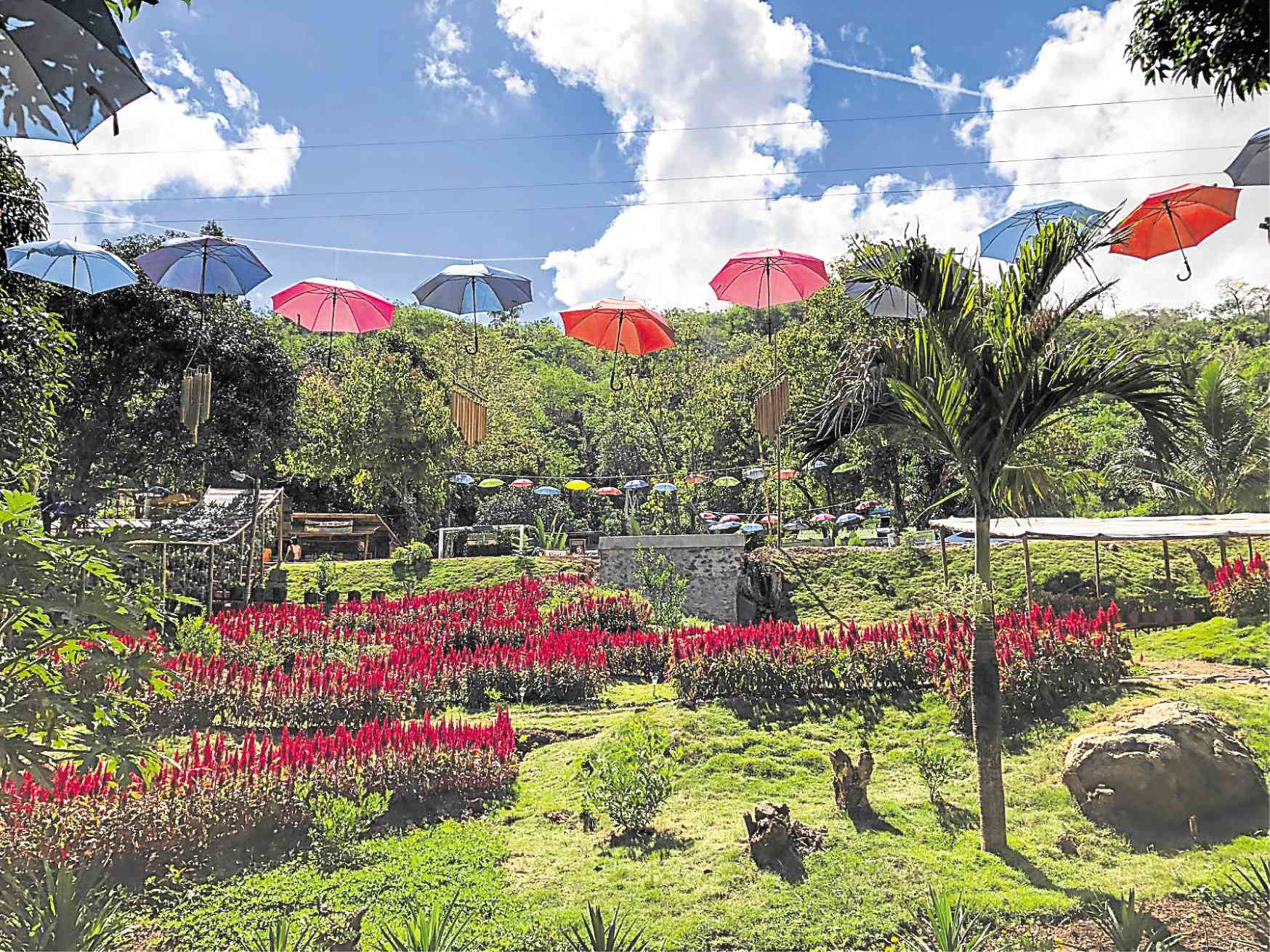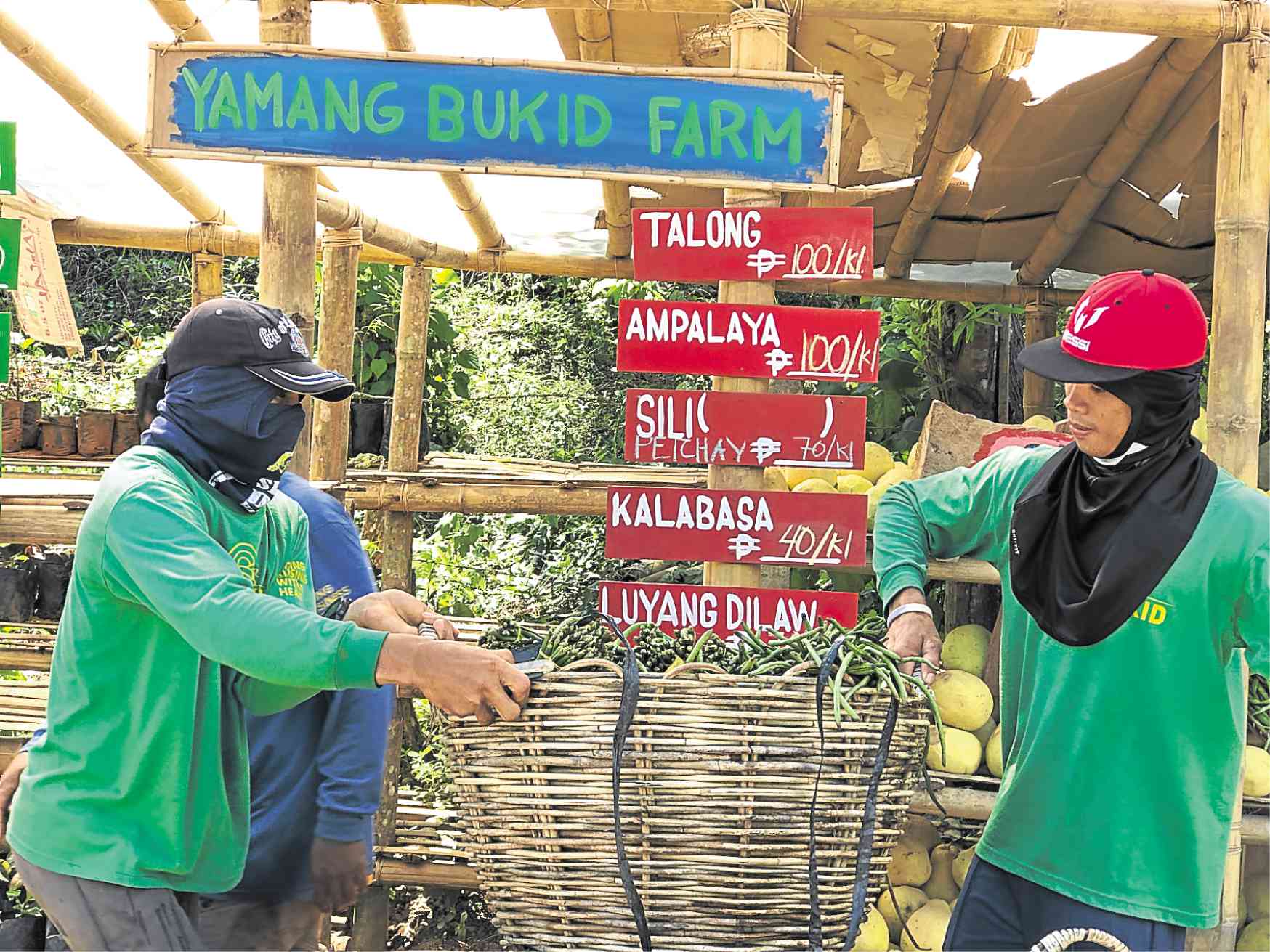Ex-loggers make amends to nature

PUERTO PRINCESA CITY—Former enemies of the environment are now working to preserve nature in a 10-hectare upland farm, a 20-minute drive away from this bustling tourist hub.
Yamang Bukid Farm in Barangay Bacungan is drawing local and foreign tourists due to its barrio-inspired landscape where various herbal and ornamental plants are grown and farm animals are raised.
It is tucked away between hills once made barren by “kaingin” (slash and burn) and tree cutting.
A virtual paradise for nature lovers of all ages and stripes, Yamang Bukid Farm is an emerging farm tourism destination in the Philippines’ frontier province of Palawan, seeking to restore the balance between the environment and the communities around it.
Well-contoured hillsides are turned verdant by neat rows of organically grown vegetables. “We even have all the crops mentioned in ‘Bahay Kubo’ plus ampalaya (bitter gourd),” farm manager Hezir Rabaya told the Inquirer.
The farm boasts of rich and diverse species of herbs, shrubs and trees with Instagrammable views of sunflower and globe amaranth (Gomphrena globosa) gardens. It also has more than 1,000 insulin plants (Chamaecostus cuspidatus), ashitaba, stevia and other medicinal and edible herbs.
With University of the Philippines-educated agricultural experts as consultants, the once barren hillsides in Bacungan’s Kandis III were transformed into a vibrant and idyllic farming haven.
Even as the farm is located some 15 kilometers from the city center via a well-paved winding road, the farm has been gaining attention from tourists, drawing hundreds of local and foreign visitors, especially during weekends.
Yamang Bukid Farm started as a small, private place for turmeric production barely two years ago.
“We did not intend it to become a tourist destination. Because we had so much time, we bought a small parcel of land to be planted with the herbs and vegetables,” according to farm owner Rene Maduro. “Then we added the flowers and people started coming until it evolved into this.”
When the farm started in August 2017, local residents who were then subsisting on the destructive kaingin farming and earning cash by cutting trees for charcoal and lumber, were hired as workers.
“Some were even sued or jailed for illegal logging,” said village councilor Daniel Anjan, a Yakan who left his hometown in Mindanao’s Basilan over two decades ago for a peaceful life in the western Philippine province. He married a local woman in Bacungan and became the only Muslim official in the predominantly Catholic village of some 3,000 residents.
“We prioritized the hiring of former illegal loggers so they can have new, decent jobs,” added Anjan, the farm’s general manager.
Maduro, whose Baguio City-based turmeric tea products are gaining popularity in the healthy products industry, said Yamang Bukid farm is their effort to “save Mother Earth by stopping illegal logging” in Bacungan and in Puerto Princesa.

Of the farm’s 180 employees, Maduro said some 95 percent were former tree cutters.
Among them is Retchel Tesado, a 33-year old mother of four who had been a “mag-uuling” (charcoal maker) and logger for 16 years, or nearly half her life.
Together with her husband Sonny, 37, Retchel would earn about P8,000 in three weeks or less.
“We did not really mind then if our livelihood killed even young trees. My family needed to live, too,” Tesado, who helps in the flower gardens and at the workers’ mess hall, said during a break during the workers’ practice of a zumba performance for an upcoming farm event. Now, the couple gets at least P16,000 per month as farm hands.
Edelrico Tabal, a UP-educated doctor of agronomy, said scientifically sound farming practices were applied in turning the farm from a mere shrub-covered upland area into a thriving ecosystem of rich biodiversity.
“When we started developing the farm, we found numerous species of butterflies and bees not endemic in the area. Because the plants are pesticide-free, there’s an ecosystem balance and many organisms thrived,” Tabal, one of the farm’s consultants, said.
For the agronomist, the organic way of farming also helped local farmers understand and adopt the practice.
Accredited by the Department of Tourism as a farm tourism destination in Palawan, Yamang Bukid Farm gives visitors a chance to unwind, breathe the flower-perfumed air and experience how to live in an unspoiled rural setting.
For gastronomical pleasure, the farm has a restaurant where one can order dishes out of native chicken.
Its House of Kakanin churns out local delicacies such as the “suman sa bulo,” or “sumbulo,” glutinous rice cake cooked inside a bamboo, a popular “pasalubong.”
Greeting guests is the farm’s “I love Yamang Bukid” marker on the side of the road opposite the line of stalls selling the company’s herbal products, trinkets and yes, “malunggay” ice cream.
Adding to the farm’s draw is its novel way of not collecting entrance fees.
“We want to give everyone, regardless of economic status, the chance to visit and tour the farm,” said Maduro, the owner, adding the farm’s high-valued herbal plants and other income streams are at least more than enough to cover its overhead. “This is also in line with our principle of doing business with a heart,” he added.
